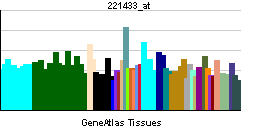Chemotherapy's Unseen Impact: DNA Damage in Healthy Blood Cells Revealed

In a groundbreaking study published on July 1, 2025, in the journal Nature Genetics, researchers from the Wellcome Sanger Institute, the University of Cambridge, and Cambridge University Hospitals NHS Foundation Trust have unveiled alarming evidence of DNA damage caused by chemotherapy in healthy blood cells. This comprehensive investigation sheds light on the genetic effects of various chemotherapy agents, providing pivotal insights that could refine future cancer treatments.
The research involved analyzing blood cell genomes from 23 patients aged between three and 80 who underwent different chemotherapy regimens for blood and solid cancers. The team, part of the Cancer Grand Challenges initiative known as Mutographs, discovered that many chemotherapy drugs induce mutations and signs of premature aging in healthy blood, raising concerns about the long-term health implications of these treatments.
Traditionally, chemotherapy has been recognized for its systemic approach in targeting cancer cells, but its collateral damage to healthy tissues has long been overlooked. According to Dr. Emily Mitchell, first author at the Wellcome Sanger Institute and a clinician at CUH, “For the first time, we have taken a systematic view of the genetic effects of chemotherapy on healthy tissues – in this case, blood.” The findings indicate that certain chemotherapy agents, particularly platinum-based drugs like carboplatin and cisplatin, lead to significantly higher mutation rates in normal blood cells compared to individuals who have never received such treatments.
The research team found that the genetic alterations caused by chemotherapy manifest similarly to the natural aging process of hematopoietic stem cells, which produce blood. Notably, the study revealed that chemotherapy could accelerate aging in these stem cells, particularly in pediatric patients. Dr. Jyoti Nangalia, co-lead author and Consultant Haematologist at CUH, emphasized that “the effects of chemotherapy we see here – increasing numbers of mutations and premature aging of healthy blood – reasonably contribute to the heightened risk of additional cancers and the patient’s ability to tolerate further treatments in the future.”
This study not only highlights the necessity for a deeper understanding of the biological mechanisms behind chemotherapy-induced genetic changes but also suggests that genomic data could be instrumental in refining treatment plans. By identifying the mutational signatures associated with specific chemotherapy agents, clinicians may be able to select therapies that minimize genetic damage to healthy tissues while maintaining efficacy against cancer.
David Scott, Director of Cancer Grand Challenges, noted the dual importance of this research in improving cancer treatments while ensuring patient safety. He stated, “While many cancers can now be targeted using precision therapies, chemotherapy remains a key way to treat some cancers and saves many lives every year.”
The implications of this research extend beyond individual treatment plans, potentially influencing guidelines for chemotherapy administration. Professor Sir Mike Stratton, the Mutographs team lead and co-lead author at the Wellcome Sanger Institute, expressed optimism that the genomic information gleaned from this study will guide clinicians in making informed decisions about chemotherapy options.
Overall, this study presents a critical leap forward in understanding the long-term effects of chemotherapy on healthy cells, setting the stage for future research aimed at optimizing cancer treatments to be both effective and less harmful. As the medical community continues to grapple with the balance between treating cancer effectively and preserving the health of patients, such research will be essential in shaping the future of oncological care.
**Methodology:** The study incorporated whole genome sequencing of blood cells and compared the data from chemotherapy-treated patients against a control group of healthy individuals. The results indicate that the genetic damage associated with chemotherapy varies significantly across different drugs and patient demographics, underscoring the need for tailored treatment approaches that consider genomic factors.
**Future Directions:** The researchers advocate for further studies involving a broader spectrum of tissues and larger patient cohorts to comprehensively understand the genetic impact of chemotherapy. This research opens avenues for developing protocols that minimize long-term adverse effects while maximizing therapeutic efficacy.
**Disclaimer:** This article is based on research findings and should not be construed as medical advice. Patients should consult healthcare professionals regarding treatment options.
Advertisement
Tags
Advertisement





